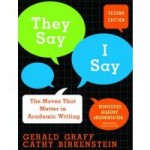Hear interview with Kenrick Mock on Thursday, Nov. 22, 5:00pm on KRUA, 88.1, The Edge in Anchorage, Alaska! Also available online.
November 19, 9:00-10:00am Alaska time, Deb the Librarian interviewed Kenrick Mock about his patented eye tracking technology and other technological research, the patent application process at UAA and the Computer Science Program.
Read Kenrick Mock’s vita: http://www.math.uaa.alaska.edu/~afkjm/vita.html
Professor Mock explained that having a patent on the specific eye tracking software allows UAA to have the ownership rights to that technology for 20 years. He has developed this technology with Bogdan Hoanca. Watch videos about their eye tracking technology:
Watch a video demo of eye tracking technology: http://www.math.uaa.alaska.edu/~afkjm/ContinuousAuthenticationIris/ContinuousAuthenticationIris.html
Watch a video of Kenrick Mock talking about eye tracking software development: http://www.youtube.com/watch?v=32121BU6q6U (3:34)
UAA funding for this project initially came from the INNOVATE Award, established by the Vice Provost for Research and Graduate Studies. This year “the INNOVATE grant is providing up to $200,000.00 to UAA faculty members and researchers in its’ program. Awards will be announced in December 2012 with funding to begin January 2013.” http://www.uaa.alaska.edu/research/INNOVATE/innovateawards.cfm
Kenrick Mock and Bogdan Hoanca, as co-principal investigators, also received a $126,183 grant from the National Science Foundation to support the “acquisition of high-end eye trackers for research in information management, computer security, learning mathematics, and interdisciplinary research at UAA.” (see Professor Mock’s vita) Congratulations Professor Mock and Professor Hoanca!
Information Resources talked about included: IEEE and ACM Proceedings that can be searched under www.consortiumlibrary.org, selecting Subjects (in QuickSearch box, and then selecting either Computer Science or Engineering to see the Computer Science and Engineering databases.
I, Deb, mentioned that Poland was adding coding to their elementary school curriculum based on an article I read recently. Well folks, I was wrong! The country is Estonia! Thanks to George Eberhart, Editor of American Libraries Direct for finding this for me. Even librarians need help finding information! Read more about Estonia’s implementation of coding into their education curriculum below:
Guess who is winning the brains race?
Jolie O’Dell writes: “It’s Estonia! We’re reading that Estonia is implementing a new education program that will have 100% of publicly educated students learning to write code. Called ProgeTiiger, the new initiative aims to turn children from avid consumers of technology (which they naturally are; try giving a 5-year-old an iPad sometime) into developers of technology (which they are not).”…
VentureBeat, Sept. 4; Tiigrihüpe The relevant link is: http://venturebeat.com/2012/09/04/estonia-code-academy/
I also mentioned an article in Oprah Winfrey’s December issue of O Magazine that talks about the development of a comedian robot that adjusts the jokes it tells according to how the audience responds; and the development of robots with different personalities for different functions. For example, a robot working in a parking garage would have a different personality than a robot working in a preschool. For more information about the company discussed in this article, go to http://www.marilynmonrobot.com/.
Music played today on Informania included: Information, by Dredg; Somebody’s Watching Me, by Rockwell, Code Monkey by Jonathon Coulton, and A Laptop Like You by Jonathon Coulton

